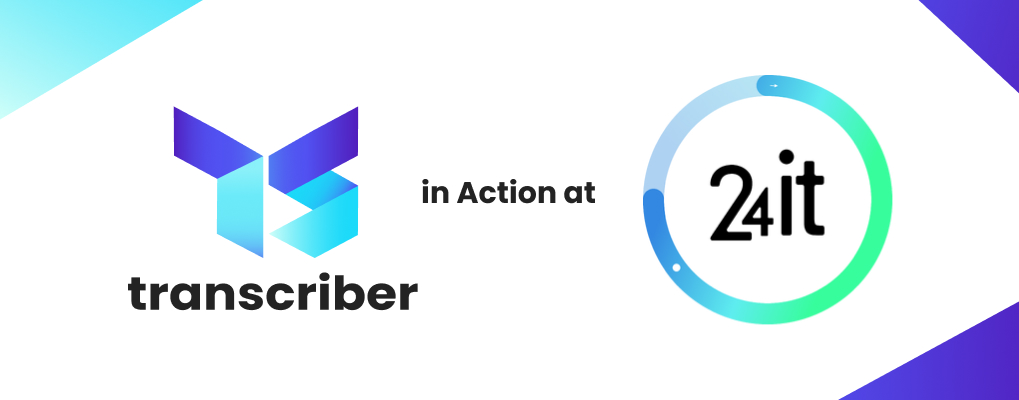
For a recent edition of 24IT (TWO 4 IT), a show about and with technology, we were invited to showcase Transcriber - our intelligent transcript & translate app designed to transform how we handle audio and video content. With capabilities that include transcriptions, translations in over 40 languages, summaries, and more, Transcriber leverages AI to enhance accessibility and understanding across various fields.
During the interview, Marian Simpetru, Managing Partner eSolutions, conducted a live demo of Transcriber; watch the interview below to see how it works, or continue reading to find out more about AI technologies, Transcriber, its features, possible use cases, and what’s next!
Transcriber is user-friendly - it’s easy to upload a video or input a link from YouTube, and it provides, in mere seconds, the written transcription. Then, you can also opt to translate the given text, accommodating those who may not speak a certain language - for up to 40 different languages!
Users can also easily report translation errors, allowing the AI to learn and improve continuously, and edit the output accordingly. During the show, Marian demonstrated how Transcriber generated real-time transcripts from a previous broadcast, highlighting its practical applications in media.
However, Transcriber is not just limited to television; it has the potential to revolutionize the way we take notes during meetings, how online courses take place, and even assist children in learning foreign languages.
For instance, during university courses, students lose time and focus trying to take notes while the teacher presents; with Transcriber, they can completely focus on what the teacher is saying and still have access to the full course information in written form.
The same applies to business meetings and creating briefs for these. The tool can automatically produce transcripts and provide translations, making it an invaluable resource for business and technical professionals.
When asked to choose between AppleAI, Gemini, or ChatGPT, Marian chose a fourth option - Meta - mostly because it is open source. He emphasized the importance of open-source technology in democratizing access to AI, and here are just some of them:
Open-source projects encourage collaboration among developers from different backgrounds and organizations. This collective effort often leads to faster innovation and the development of more robust and feature-rich software.
Moreover, open-source projects often have vibrant communities that provide support, documentation, and resources. Users can benefit from shared knowledge and experience, making it easier to troubleshoot issues and learn from others.
Many open-source solutions are available for free, which can significantly reduce costs for individuals and organizations. This accessibility allows smaller companies and startups to leverage advanced technologies without the financial burden of licensing fees.
He also added that Gemini has many limitations, especially regarding language, while OpenAI is the friendliest, but not fully open to those who want to innovate in this area. Marian awaits the launch of the AI Agent by OpenAI next year to discuss more on this subject.